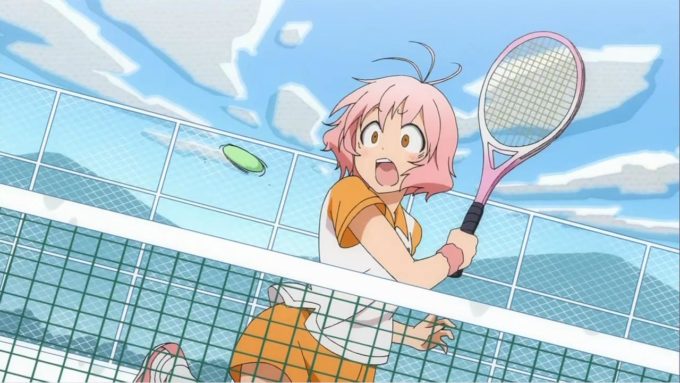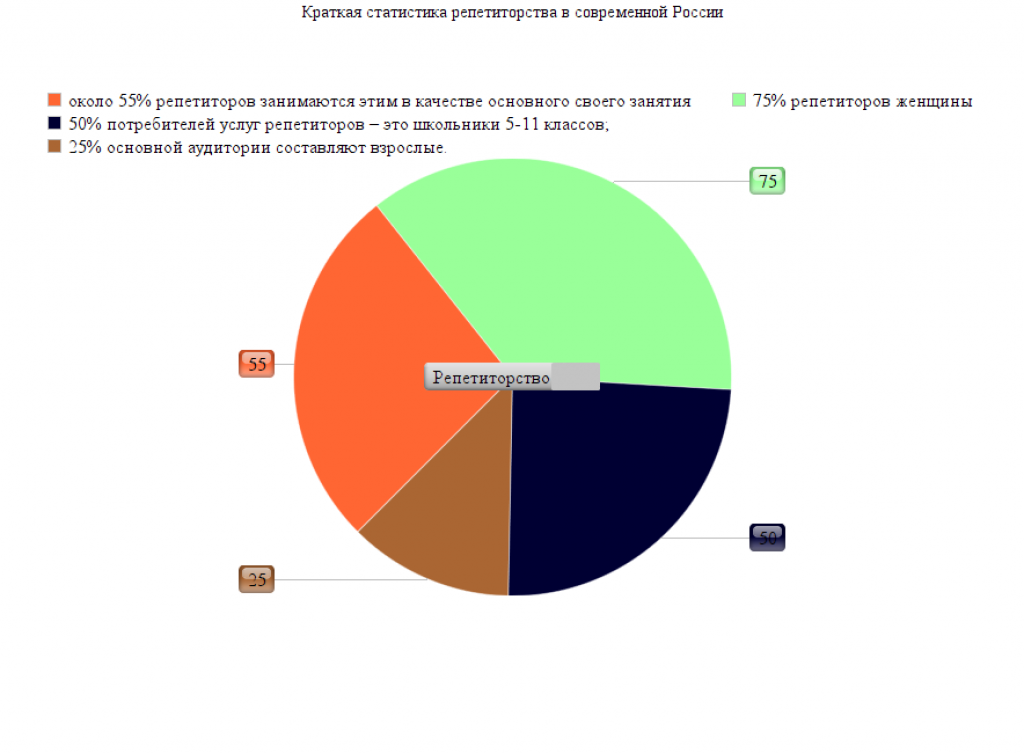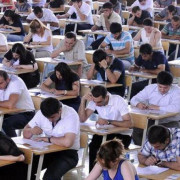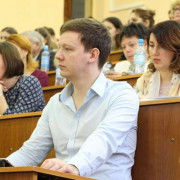Тест на времена английского языка
Содержание:
- Exercise 11. Поставьте глаголы в скобках в правильную форму.
- Exercise 4. Дополните предложения when или while.
- Проверочная работа по английскому языку на тему «Past Tenses»
- EXERCISES for Chapter 5
- Exercise 13. Составьте вопрос к выделенным словосочетаниям.
- Тесты по прилагательным
- Оставьте свой комментарий
- Past Continuous Test
- Настоящее время в английском — упражнения.
- Структура теста по прошедшим временам в английском
Exercise 11. Поставьте глаголы в скобках в правильную форму.
- … you … (to wash) the clothes at 4 o’clock yesterday? — No, I …. I … (to tidy) my room at that time.
- … Lucy … (to do) the shopping when you met her? — Yes, she … .
- … they … (to translate) the text in the afternoon? — No, they …. They … (to prepare) for the Maths test.
- … Alison and Rita … (to sit) in a cafe at three o’clock? — Yes, they … . They … (to eat) ice cream.
- … Steve … (to play) computer games all the evening? — No, he …. He … (to do) his homework.
- … Barbara … (to sunbathe) in the morning yesterday? — Yes, she ….
- … the children … (to help) their grandparents yesterday? — Yes, they … . They … (to gather) fruit in the garden.
- … you … (to sleep) at four o’clock yesterday? — Yes, I … .
- … Phil … (to speak) to the receptionist when you came into the hall of the hotel? — No, he …. He … (to have) breakfast in the cafe.
- … you (to pack) your luggage when the taxi arrived? — No, I … .
Answers: 1.Were you washing the clothes at 4 o’clock yesterday? — No, I wasn’t. I was tidying my room at that time. 2. Was Lucy doing the shopping when you met her? — Yes, she was. 3. Were they translating the text in the afternoon? — No, they weren’t. They were preparing for the Maths test. 4. Were Alison and Rita sitting in a cafe at three o’clock? — Yes, they were. They were eating ice cream. 5. Was Steve playing computer games all the evening? — No, he wasn’t. He was doing his homework. 6. Was Barbara sunbathing in the morning yesterday? — Yes, she was. 7. Were the children helping their grandparents yesterday? — Yes, they were. They were gathering fruit in the garden. 8. Were you sleeping at four o’clock yesterday? — Yes, I was. 9. Was Phil speaking to the receptionist when you came into the hall of the hotel? — No, he wasn’t. He was having breakfast in the cafe. 10. Were you packing your luggage when the taxi arrived? — No, I wasn’t.
Exercise 4. Дополните предложения when или while.
- The boys were playing football… the ball flew into the window.
- Ronny was painting the fence … the bucket of paint turned over.
- Denny was putting a tent… the girls were gathering wood for fire.
- Rita was sleeping … the alarm-clock rang.
- Nelly was peeling potatoes … her sister was cutting chicken into pieces.
- Nigel was skiing … he fell down and broke his leg.
- They were arguing … Mrs Elliot entered the room.
- … my mother was watching her favourite show on TV, father was making coffee.
- She was typing a letter … she found some mistakes.
- They were driving towards the village … it started to snow.
Answers: 1. when; 2.when; 3. while; 4. when; 5. while; 6.when; 7.when; 8. while; 9. when; 10. when.
Проверочная работа по английскому языку на тему «Past Tenses»
(Past Simple / Past Continuous / Past Perfect / Past Perfect Continuous)
1.Choose the right form of the verb.
1.She looked tired. She (planted/was planting/had been planting) flowers all morning.
2.I (was playing/played/had played) volleyball when the ball hit my head.
3.His clothes were smudgy because he (finished/had finished/was finished) painting the walls.
4.When I was five my parents (were buying/bought/had been buying) a piano for me.
5.Kim (was dancing/danced/had danced) when her husband opened the door.
6.He (cut/was cutting/had been cutting) the grass for an hour when suddenly the lawn-mower
7.First I (had taken off/took off/was taking off) my coat, then I went to the bathroom.
8.She forgot everything she (had studied/was studying/studied) at a driving school.
2.Fill in the gaps with the Past Perfect or the Past Simple.
1. They _____________ (already/eat) all the bread when the waiter ________________ (bring)
2. He __________(have) the car for twelve years when he ___________________(sell) it.
3. She __________________ (never/phone) the dentist before.
4. The baby ___________________(fall ) asleep by 11 o’clock.
5. I _________________(go) to bed as soon as I __________________ (finish) all the grammar
6. We _______________(prepare) the food before the guests _______________(arrive).
7. Mum ___________________ (already make) breakfast when we ________________ (get up).
8. Kate ___________________ (start) studying after John ______________________ (leave).
9. She __________________ (realise) that she _________________ (forget) her book at home.
10. Lisa’s mother __________________(buy) her a kitten yesterday because she
_____________(sing) well in the concert the night before.
3.Fill in the gaps with the Past Perfect or the Past Perfect Continuous.
1. The thief ______________________(steal) cars for years before he was caught.
2. The phone _____________________________(ring) for ten minutes before he answered it.
3. The decorator ____________________________(paint) all the walls before Dad got home.
4. I _________________________(do) the housework all day, so I decided to take a break.
5. They _________________________________(eat) all the pizza before I got there.
4.Fill in the gaps with the Past Simple, the Past Continuous, the Past Perfect or the Past Perfect Continuous
1. He was tired. He _______________________________(drive) since 8 a.m.
2. She __________________________(fry) the fish when the frying pan caught fire.
3. Tom _______________________(return) from the cinema at five o’clock.
4. She _________________(type) a letter while she _________________(talk) on the phone.
5. Mother ____________________(see) that Nick ____________________(not wash) his hands.
Предлагаемая проверочная работа составлена исходя из программы УМК «Английский в фокусе» (8 класс). В проверочной работе представлены задания, соответствующие содержанию учебника и направленные на выявление усвоения пройденного материала. Данная работа состоит из четырех заданий, а именно:
1. Выбор глаголов среди предлагаемых вариантов (простое прошедшее время, длительное прошедшее время, сложное прошедшее время, сложное длительное время):
2. Раскрытие скобок (сложное прошедшее время или простое прошедшее время);
3. Раскрытие скобок (сложное прошедшее время или сложное длительное время);
4. Раскрытие скобок в необходимой временной форме (простое прошедшее время, длительное прошедшее время, сложное прошедшее время, сложное длительное время).
Номер материала: ДБ-370510
Не нашли то что искали?
Вам будут интересны эти курсы:
EXERCISES for Chapter 5
- Using the Simple Past tense, fill in the blanks with the correct forms of the verb to be. For example:
I ___ calm.
I was calm.
You ____ right.
You were right.
- He ________ happy.
- We _________ students.
- They ________ ambitious.
- You _________ clever.
- It _________ hot.
- I _________ busy.
- We _________ patient.
- She _________ eleven years old.
- They ________ intelligent.
- He _________ in a hurry.
- Rewrite the following affirmative statements as questions, negative statements, negative questions without contractions, negative questions with contractions, and affirmative statements followed by negative tag questions. For example:
You were on time.
Were you on time?
You were not on time.
Were you not on time?
Weren’t you on time?
You were on time, weren’t you?
It was warm enough.
Was it warm enough?
It was not warm enough.
Was it not warm enough?
Wasn’t it warm enough?
It was warm enough, wasn’t it?
- I was late.
- They were in a hurry.
- He was an artist.
- We were right.
- She was there.
- Paying attention to the correct spelling, fill in the blanks with the Simple Past of the regular verbs shown in brackets. For example:
It _______ raining. (to stop)
It stopped raining.
I _________ myself. (to disguise)
I disguised myself.
- She _____________ through the book. (to flip)
- We _____________ the traffic. (to watch)
- You _____________ the flowers carefully. (to arrange)
- He _____________ about his success. (to brag)
- They _____________ sightseeing. (to enjoy)
- He _____________ us with pencils. (to supply)
- I _____________ the child. (to reassure)
- We _____________ for them. (to wait)
- They _____________ the books overseas. (to ship)
- She ____________ too much. (to worry)
- Referring to the table of English irregular verbs if necessary, fill in the blanks with the Simple Past tense of the irregular verbs shown in brackets. For example:
They _____ a song. (to write)
They wrote a song.
We _____ the floor. (to sweep)
We swept the floor.
- She ____________ the dishes. (to do)
- They ___________ for a walk. (to go)
- He __________ his time. (to take)
- I ___________ the beds. (to make)
- They ___________ to catch the bus. (to run)
- She ___________ up quickly. (to get)
- You ___________ the coffee. (to drink)
- We ___________ soundly. (to sleep)
- He ___________ his books. (to forget)
- I ___________ the house. (to leave)
- Paying attention to the correct forms of the bare infinitives, change the following affirmative statements into questions. For example:
He lifted the suitcase.
Did he lift the suitcase?
I paid the rent.
Did I pay the rent?
- She hurried to school.
- They carried the parcels.
- You closed the door.
- I plugged in the lamp.
- They planned the party.
- We taught the class.
- She told a story.
- They struck a bargain.
- He met his friends.
- I shook hands.
- Paying attention to the correct forms of the bare infinitives, change the following affirmative statements into negative statements. For example:
I scanned the newspaper.
I did not scan the newspaper.
They flew to Toronto.
They did not fly to Toronto.
- We enjoyed ourselves.
- She pinned on the brooch.
- I fanned myself.
- They emptied their pockets.
- You replied at once.
- He went to work.
- We swam across the river.
- They took the bus.
- I shut the windows.
- You ran fast.
- Paying attention to the correct forms of the bare infinitives, change the following affirmative statements into negative questions. Give both the forms without contractions and the forms with contractions. For example:
You walked quickly.
Did you not walk quickly?
Didn’t you walk quickly?
He burst the balloon.
Did he not burst the balloon?
Didn’t he burst the balloon?
- You watched the game.
- I climbed the ladder.
- We pleased the visitors.
- They canned the peaches.
- He received the letter.
- You saw the fireworks.
- It cost five dollars.
- She hit the ball.
- He did his homework.
- They cut the ribbon.
- Rewrite the following sentences, changing the underlined verbs from the Simple Past to the form with used followed by the infinitive. For example:
They took the bus.
They used to take the bus.
She traveled every year.
She used to travel every year.
- It snowed heavily.
- I came often.
- We were neighbors.
- He wrote many letters.
- They walked to work.
- He teased us.
- She told us stories.
- You rode a bicycle.
Exercise 13. Составьте вопрос к выделенным словосочетаниям.

- The girls were playing tennis in the tennis court.
- The cat was sleeping on the sofa.
- We were crossing the street at the traffic light.
- He was explaining the task to his brother.
- The woman was walking slowly along the road.
Answers: 1. Who was playing tennis in the tennis court? What were the girls playing in the tennis court? Where were the girls playing tennis? 2. What was the cat doing on the sofa? Where was the cat sleeping? 3. Who was crossing the street at the traffic light? What were we crossing at the traffic light? 4.What was he explaining to his brother? Whom was he explaining the task to? 5. How was the woman walking along the road? Where was the woman walking slowly?
Тесты по прилагательным
-
Little, a little, few, a few
Когда и как используются местоименные прилагательные английского языка (little, a little, few, a few).
-
Hot, warm, cool, cold, frosty
Тест на знание английских прилагательных обозначающих холод, тепло, жару (hot, warm, cool, cold, frosty).
-
Big, large, great
Выбор между прилагательными, выражающими понятие “большой” (big, large, great).
-
Comfortable, convenient, suitable
Оценка знания нюансов английских прилагательных с общим значением “подходящий” (comfortable, convenient, suitable).
-
Beautiful, lovely, handsome, pretty
Тест на уместное употребление английских прилагательных с общим значением красоты (beautiful, lovely, handsome, pretty).
-
Little, small, tiny
Тест на употребление английских прилагательных, обозначающих маленький размер (little, small, tiny).
-
Quick, fast, rapid, swift
Тест на правильное употребление английских прилагательных, связанных с быстротой (quick, fast, rapid, swift).
-
Clever, intelligent, smart
Нюансы употребления английских прилагательных, обозначающих ум и сообразительность (clever, intelligent, smart).
-
Different, various, diverse
Тест на знание английских прилагательных, связанных с отличиями (different, various, diverse).
-
Awful, terrible, dreadful, horrible
Оцените свое знание прилагательных с негативной оценкой (awful, terrible, dreadful, horrible).
-
Huge, vast, enormous, immense
Тест на знание различий между английскими прилагательными с общим значением величины (huge, vast, enormous, immense).
-
Afraid, frightened, scared, fearful
Проверка умения правильно выбирать между английскими прилагательными, обозначающих испуг (afraid, frightened, scared, fearful).
-
Lonely, alone, single, solitary
Проверка правильного употребления английских прилагательных с общим значением одиночества (lonely, alone, single, solitary).
-
Effective, efficient, skilled, experienced
Тест на способность правильно выбрать для данного контекста прилагательные с общим значением эффективности (effective, efficient, skilled, experienced).
-
Busy, engaged, occupied
Проверьте свое знание и умение различать английские прилагательные с общим значением занятости (busy, engaged, occupied).
-
Famous, well-known, celebrated, distinguished, eminent
Различия между английскими прилагательными с общим значением известности (famous, well-known, celebrated, distinguished, eminent).
-
Empty, vacant, blank
Тест на знание различий прилагательных с общим значением “пустой” (empty, vacant, blank).
-
Happy, lucky, fortunate
Проверка умения различать английские прилагательные, связанные с понятием счастья (happy, lucky, fortunate).
-
Thin, slender, slim, lean, meager
Тест на знание и уместное использование прилагательных, связанных с худобой (thin, slender, slim, lean, meager).
-
Stout, fat, fleshy, plump
Проверка правильного употребления английских прилагательных с общим значением полноты (stout, fat, fleshy, plump).
-
Quiet, calm, still, peaceful
Тренировка уместного использования прилагательных с общим значением покоя (quiet, calm, still, peaceful).
-
Strange, queer, odd, quaint
Тест на знание английских прилагательных с общим значением “странный” (strange, queer, odd, quaint).
-
Greedy, mean, stingy
Потренируйте ваши навыки в употреблении прилагательных, имеющих общее значение жадности и скупости (greedy, mean, stingy).
-
Weak, feeble, faint, frail
Различия между прилагательными английского языка с общим значением слабости (weak, feeble, faint, frail).
-
Funny, witty, amusing, merry
Тест на правильное употребление английских прилагательных, связанных с чувством юмора (funny, witty, amusing, merry).
- Еще тесты по прилагательным
Оставьте свой комментарий
Подарочные сертификаты
Ответственность за разрешение любых спорных моментов, касающихся самих материалов и их содержания, берут на себя пользователи, разместившие материал на сайте. Однако администрация сайта готова оказать всяческую поддержку в решении любых вопросов, связанных с работой и содержанием сайта. Если Вы заметили, что на данном сайте незаконно используются материалы, сообщите об этом администрации сайта через форму обратной связи.
Все материалы, размещенные на сайте, созданы авторами сайта либо размещены пользователями сайта и представлены на сайте исключительно для ознакомления. Авторские права на материалы принадлежат их законным авторам. Частичное или полное копирование материалов сайта без письменного разрешения администрации сайта запрещено! Мнение администрации может не совпадать с точкой зрения авторов.
Past Continuous Test
Тест на Past Continuous подходит для школьного тестирования: 3, 4, 5, 6, 7, 8, 9, 10 класс. При необходимости изучите соответствующие материалы в разделе Грамматика английского языка.
Выберите наиболее подходящий вариант:
|
1 |
We ___ tea when our grandparents came. | ||||
|
A |
was having |
B |
were have |
C |
were having |
|
2 |
He ___ the house this time yesterday. | ||||
|
A |
was painting |
B |
were painting |
C |
painting |
|
3 |
Mary ___ home when she met her old friend. | ||||
|
A |
was walking |
B |
was walk |
C |
were walking |
|
4 |
They ___ cricket at 10 a.m. yesterday. | ||||
|
A |
not playing |
B |
weren’t playing |
C |
wasn’t playing |
|
5 |
Sam and I ___ over the phone when the connection failed. | ||||
|
A |
were chat |
B |
was chatting |
C |
were chatting |
|
6 |
The radio was on but nobody ___ to it. | ||||
|
A |
were listening |
B |
was listening |
C |
weren’t listening |
|
7 |
She ___ dinner while her husband was working in the garden. | ||||
|
A |
was cooking |
B |
was cook |
C |
were cooking |
|
8 |
Carol was at the party last night. She ___ a very nice dress. | ||||
|
A |
wearing |
B |
was wearing |
C |
were wearing |
|
9 |
___ at 8 p.m. yesterday? | ||||
|
A |
Knitting she |
B |
Were she knitting |
C |
Was she knitting |
|
10 |
We ___ along the coast all evening yesterday. | ||||
|
A |
was driving |
B |
were driving |
C |
were drive |
|
11 |
I ___ anything this time yesterday. | ||||
|
A |
wasn’t doing |
B |
weren’t doing |
C |
not doing |
|
12 |
We ___ a snowman all morning yesterday. | ||||
|
A |
were making |
B |
were make |
C |
was making |
|
13 |
Lucy ___ a bath at 9 o’clock yesterday. | ||||
|
A |
were having |
B |
was have |
C |
was having |
|
14 |
When I last saw you, you ___ at university. | ||||
|
A |
were studying |
B |
was studying |
C |
studying |
|
15 |
He __ for me when I came. | ||||
|
A |
was wait |
B |
was waiting |
C |
were waiting |
|
16 |
Kelly was busy, so we ___ very long. | ||||
|
A |
wasn’t staying |
B |
wasn’t stay |
C |
weren’t staying |
|
17 |
Why ___ at you? | ||||
|
A |
were that woman staring |
B |
was that woman staring |
C |
was that woman stare |
|
18 |
I didn’t go to work yesterday. I ___ well. | ||||
|
A |
wasn’t be feel |
B |
wasn’t feeling |
C |
weren’t feeling |
|
19 |
When I met Tim in the shop, he ___ for a new computer. | ||||
|
A |
was looking |
B |
were looking |
C |
was look |
|
20 |
Sally and Ann ___ in the park when it started raining. | ||||
|
A |
was running |
B |
were run |
C |
were running |
|
21 |
When I got home, my sister ___ with a kitten. | ||||
|
A |
playing |
B |
was playing |
C |
were playing |
|
22 |
Where were you yesterday evening? I ___ my niece in hospital. | ||||
|
A |
was visiting |
B |
was visit |
C |
were visiting |
|
23 |
Sue ___ outside the theatre when the performance began. | ||||
|
A |
was to standing |
B |
was standing |
C |
were standing |
|
24 |
Tom and Liz were busy yesterday. They ___ their mom around the house. | ||||
|
A |
helping |
B |
was helping |
C |
were helping |
|
25 |
We ___ a New Year tree all morning yesterday. | ||||
|
A |
were decorating |
B |
were to decorating |
C |
was decorating |
Пройти тест онлайн без регистрации: тест на Past Continuous
Тест по английскому языку на Past Continuous с ответами
|
1 |
C |
|
2 |
A |
|
3 |
A |
|
4 |
B |
|
5 |
C |
|
6 |
B |
|
7 |
A |
|
8 |
B |
|
9 |
C |
|
10 |
B |
|
11 |
A |
|
12 |
A |
|
13 |
C |
|
14 |
A |
|
15 |
B |
|
16 |
C |
|
17 |
B |
|
18 |
B |
|
19 |
A |
|
20 |
C |
|
21 |
B |
|
22 |
A |
|
23 |
B |
|
24 |
C |
|
25 |
A |
Скачать тест по английскому языку: Past Continuous в формате pdf – Past Continuous Test
Настоящее время в английском — упражнения.
Ну что же, переходим к упражнениям по 4 настоящим временам английского языка.
Упражнение 1. Раскройте скобки, употребив одно из настоящих времен.
- What time _____________ (the meeting/end)?
- Tomorrow I _____________ (fly) to Moscow to visit my aunt Sally.
- Right now he _______ (talk) on the phone.
- The Earth __________ (go) round the Sun.
- I _________ (look) for my camera for an hour.
- Could you close the window? I _____________ (freeze)
- The man __________ (paint) the walls all day long.
- The coffee ___________ (smell) good.
- At the moment we ___________ (take) a walk around a beautiful village.
- We _____________ (not/finish) our history project yet.
- Kim _____________ (never/be) abroad.
- School always _______ (close) for Easter holidays.
- I’m exhausted. I _____________ (train) my stomach muscles all morning.
- What _____________ (usually/you/do) in your free time?
- Look! Your mum ____________ (water) tomatoes in the vegetable garden.
Упражнение 2. Choose the right variant.
1 The boy ___________his homework and now he _________-TV.
a) already has done, watches
b) already does, has watched
c) has already done, is watching
2. They___________ about Russian traditions since the beginning of the lesson.
a) have been talking
b) are talking
c) talk
3. This is the best conference I ________.
a) am
b) have ever been to
c) ever have been to it
4. The postman usually __________ at 9 in the morning. It is half past 9 now but he ___________
a) comes, has not come yet
b) comes, has not been coming
c) is coming, has not come yet
5. They__________ the walls and they ___________nice.
a) have painting, are looking
b) have painted, look
c) have been painting, look
6. The economic situation in the world is already bad and it __________worse.
a) is getting
b) gets
c) have gotten
Упражнение 3. Use Present Simple, Present Continuous or Present Perfect.
Hello Nancy
It (1) _________ (be) time since my last letter to you. I (2) ____________ (still/work) at ABS and the company (3) _____________ (do well). This is very fortunate as many of my friends (4) ___________ (lose) their jobs. Our savings (5) _____________ (take) a disastrous dive because of the economy. I (6) ____________ (know) the situation everywhere is difficult and I (7) __________ (be) happy I still have a job. My friend Michael and his wife Georgia (8) ______________ (now, live) in Virginia. Michael (9) ______________ (finish) studying massage therapy. He (10) __________ (run) a small clinic in partnership with another woman. He and Georgia (11) _____________ (look) for a full-time job, though, as they (12) _____________ (lose) money also. As I say, many people (13) __________ (have) a hard time now.
Упражнение 4. Переведите предложения на русский, используя одно из настоящих времен английского языка.
- Он смотрит телевизор с самого утра.
- Завтра у меня урок английского в 8:00.
- Воздух в городе становится все более и более грязным.
- Я потерял кошелек.
- Её волосы грязные. Она красила дом весь день.
- Ты постоянно что-то теряешь!
- Ты пишешь сочинение уже два часа.
- Я хожу в бассейн три раза в неделю.
- Папа чинит машину с самого утра.
- Он сломал ногу.
Ответы к упражнениям.
Exercise 1.
1 does the meeting end, 2 am flying, 3 is talking, 4 goes, 5 have been looking, 6 am freezing, 7 has been painting, 8 smells, 9 are taking, 10 have not finished, 11 has never been, 12 closes, 13 have been training, 14 do you usually do, 15 is watering
Exercise 2.
1 c, 2 a, 3 b, 4 a, 5 b, 6 a
Exercise 3.
1 has been, 2 am still working, 3 is doing, 4 have lost, 5 have taken, 6 know, 7 am, 8 are living, 9 has finished, 10 is running, 11 are looking, 12 have lost, 13 are having
Exercise 4.
- He has been watching TV since the very morning.
- Tomorrow I have English class at 8:00.
- The air in the city is becoming more and more dirty.
- I have lost my wallet.
- Her hair is dirty. She has been painting the house the whole day.
- You are always losing something!
- You have been writing an essay for two hours.
- I go to the pool three times a week.
- My father has been repairing the car since morning.
- He has broken his leg.
Надеюсь, эти упражнения помогли вам систематизировать употребление времен группы Present.
Структура теста по прошедшим временам в английском
Всего будет 20 вопросов с четырьмя вариантами ответа. Один — правильный, два — неправильных, и еще один — вариант «не знаю».
Особенность этого теста заключается в том, что для успешного прохождения нужно разбираться во всех четырех времена прошедшего времени. В каждом вопросе вам предложат подставить правильную конструкцию, и без глубокого понимания темы будет сложно понять, какая из них наиболее уместна. Так что вам пока рановато проходить тест, если вы выучили только Simple и Continuous. Лучше вернитесь в начало статьи и перейдите по ссылкам на статьи про все времени группы Past.
Результат теста высветится после ответа на последний вопрос. Количество правильных ответов можно будет сверить с табличкой под тестом и узнать, насколько хорошо вы справились.
Если вы не знаете правильного ответа на какой-то вопрос, то выбирайте вариант «не знаю». Это будет логично и честно. Не пытайтесь набрать бонусные балы, которые вы на самом деле не заслуживаете.
Такс, все. Теперь вы готовы. Желаем удачи!
0-10 правильных ответов: Судя по всему, вам эта тема мало знакома. Вы можете отличить прошедшее время от настоящего и будущего, но не разбираетесь в тонкостях Perfect и Perfect Continuous.11-16 правильных ответов: Неплохой результат. По крайней мере основы вы уже знаете, но иногда путаетесь. Это нормально — тема достаточно сложная, и русскоговорящим сложно ее освоить. Продолжайте практиковаться, чтобы улучшить свои результаты.17-20 правильных ответов: Принимайте наши поздравления! Вы сдали тест на «отлично».
В каком возрасте можно начинать учить английский





